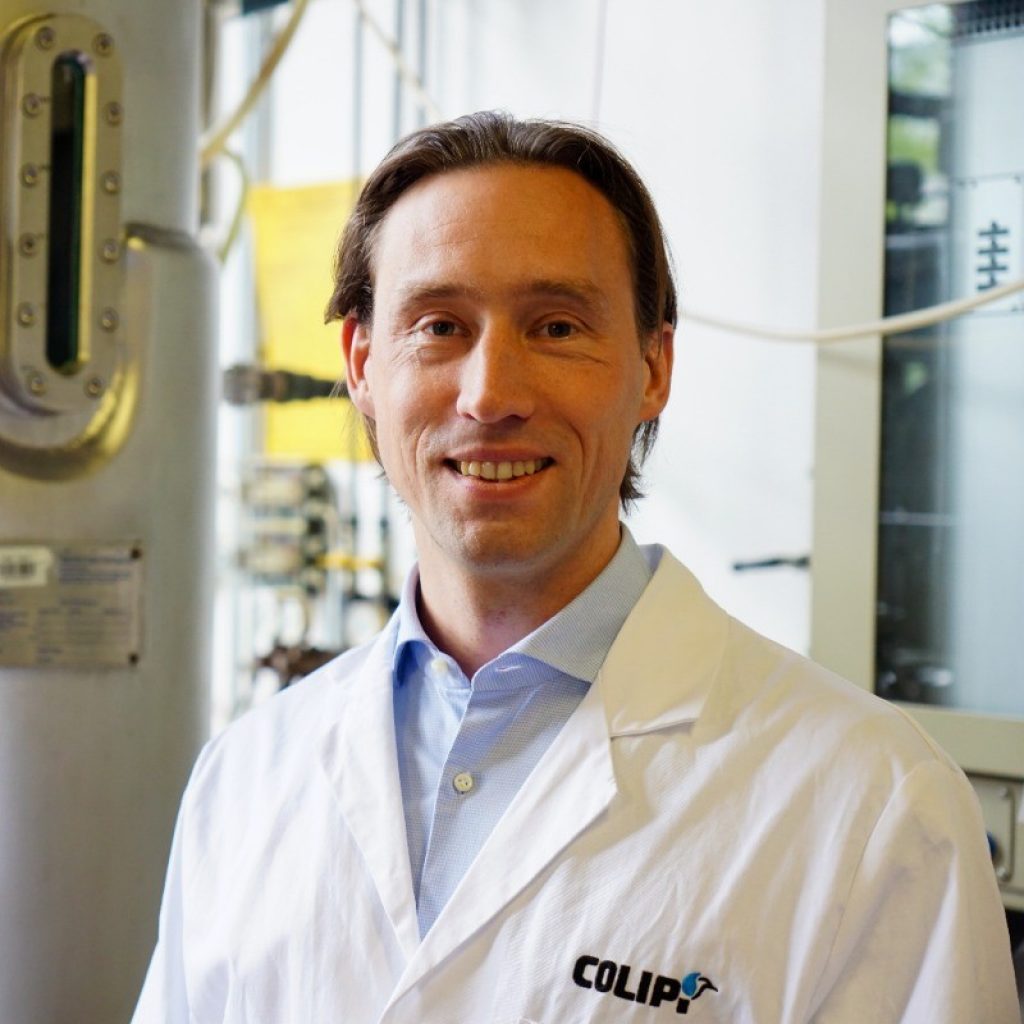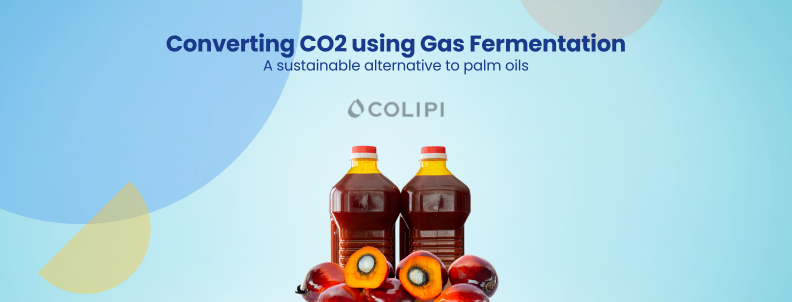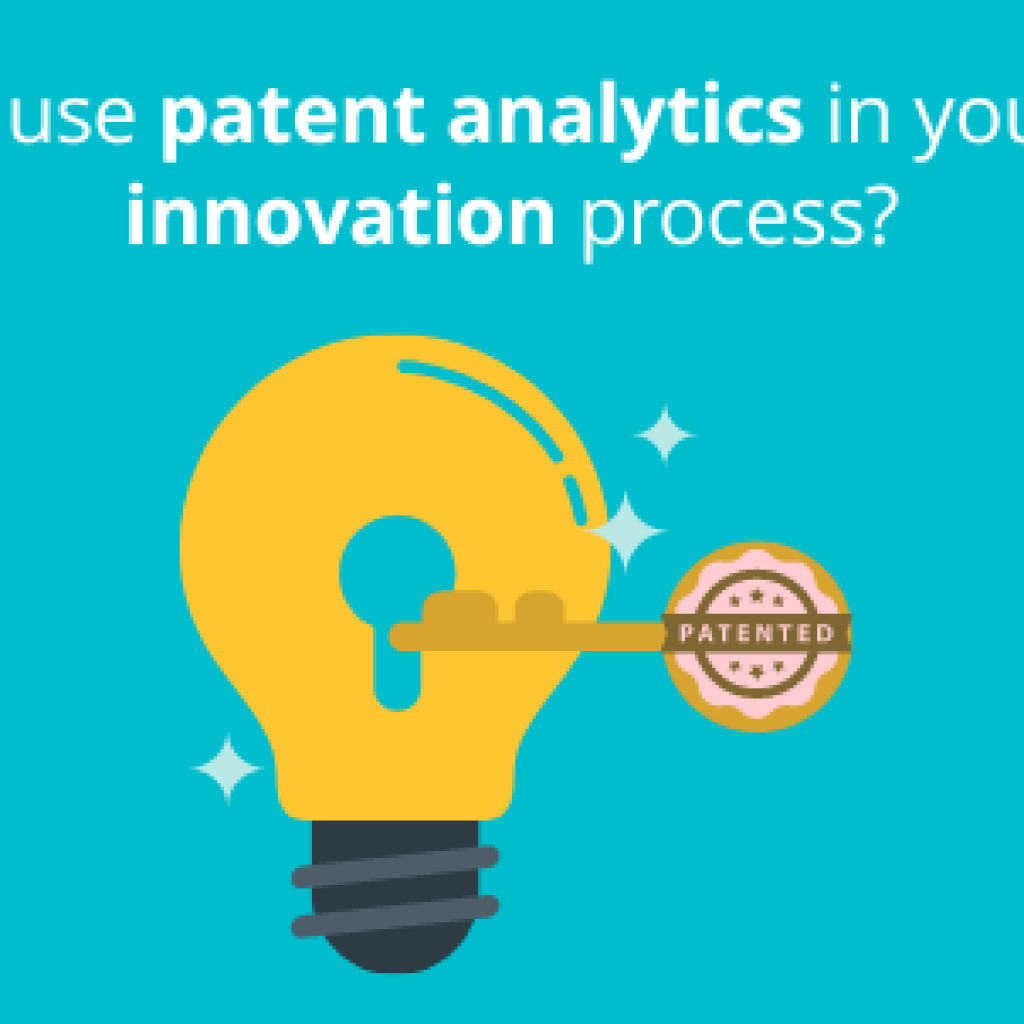As the world’s most widely used vegetable oil, from food to cosmetics, palm oil drives a $68 billion market. However, its unrestrained expansion eradicates rainforests vital to mitigating climate change.
If left unaddressed, the palm oil supply chain risks market instability, operational risks, and shrinking profit pools as consumer brands demanding deforestation-free supply struggle to find raw materials.
However, high-tech startups aim to reinvent this market sustainably and curb the global demand for versatile vegetable oils. One such innovator is Colipi. The startup claims to modify microbial biosystems to produce palm oil equivalents.
As a technology scouting firm, we were determined to uncover the science behind Colipi’s technology and explore its potential impact on combating health concerns and production challenges. So, we invited Max, the co-founder and CEO of Colipi, to gain valuable insights into their technology.
Author’s note: Upon researching, we found many other startups researching palm oil alternatives. Curious to know about them? Read this article next!

Maximilian Webers is the co-founder and CEO of Colipi, a German biotech startup developing a sustainable palm oil alternative using precision fermentation. With a background in extensive R&D, Webers combines scientific expertise and a strategic approach to drive Colipi’s vision forward in his role as CEO.
Watch the complete video to learn more about Colipi’s technology.
If you’re short on time, here’s a quick overview of the startup and the key highlights from the conversation.
Overview: Colipi’s precision fermentation technology
Colipi utilizes two distinct precision fermentation technologies. The first involves yeast-based liquid fermentation, a non-GMO process. This method transforms organic side streams—derived from various industries containing sugars, starch, fatty acids, and carbon chains—into vitamin-containing oils. These oils are chemically equivalent to palm oil, soybean oil, cocoa butter, and shea butter, sharing similar chemical profiles.
The second technology is a patented gas fermentation bioreactor and process, providing hardware and process innovations. This technology scales precision gas fermentation using specific bacteria. These bacteria convert carbon dioxide, sourced from plant-based origins like bioethanol plants, biogas plants, cement production plants, steel plants, and fossil combustion processes, into biomass. The biomass includes triacylglycerides, other biomaterials, and proteins.
Colipi distinguishes itself with this gas fermentation technology, setting it apart from other startups primarily using yeast fermentation.
Maximilian Webers, Co-founder and CEO, Colipi
Highlights from the conversation
What industries and businesses are Colipi’s primary targets for its carbon capture and sustainable feedstock solutions?
Colipi’s business model caters to two main categories of customers.
First, there are companies that are obligated, either legally or due to their high carbon emissions, to offset or utilize carbon. These businesses, often paying carbon credits, have various options, such as pumping CO2 into the soil for sequestration, creating ethanol with technologies like Lanzatech, or producing oil with Colipi. The resulting oil can be employed in applications like plastics, contributing to carbon sequestration, particularly in products like PVC flooring.
Second, companies not legally mandated to reduce CO2 emissions, especially those generating biogenic CO2 from sources like biogas or fermentation startups, may find value in Colipi’s process.
Currently, biogenic CO2 is not penalized by governments, and Colipi’s technology offers a means for these companies to monetize their carbon side streams, turning a previously unrecognized loss into revenue.
Additionally, companies without legal mandates may economically benefit from Colipi’s triacylglyceride production, which can be directed towards oils or biofuels, specifically the sustainable aviation fuel market. This market is government-mandated, and the insufficient supply of traditional feedstocks like used cooking oil and palm oil creates a demand for alternative sources.
In short, Colipi’s ideal customers include –
- Carbon-emitting industries seeking sustainable carbon capture solutions
- Companies with biogenic CO2 streams looking to monetize them
- And those needing alternative feedstocks for biofuels, particularly in the aviation sector.
Is Colipi currently prioritizing food-grade certifications, or is the focus on industries with more immediate sustainability mandates like fossil oil and aviation?
Colipi is currently focusing on industries with more immediate sustainability mandates, such as fossil oil and aviation. The food industry, while acknowledged, is considered a far-fetched goal at the moment.
The challenges include lesser industry motivation and the significant hurdle of obtaining food-grade certifications, making it a secondary or possibly even a tertiary focus in the future.
What challenges did Colipi encounter in commercializing its technology, particularly in securing investments and addressing cost issues?
Colipi encountered significant challenges in commercializing its technology, with the primary hurdle revolving around securing investments for capital expenditures (CapEx).
Building large bioreactors, crucial for achieving an economy of scale, requires substantial steel and concrete. Commercial plans ranging from 500 to 1000 cubic meters translate to a substantial CapEx, estimated at around $150 million. The difficulty lies in finding investors, as venture capitalists are hesitant, and major industrial players may need to rely on bank loans and other financing tools.
The second challenge involves the price dynamics associated with using traditional feedstocks. Sugarcane or corn sugars. Sugar, a costly raw material, constitutes up to 80% of production costs. While industrializing on side streams offers economic and sustainability benefits, these streams are complex, seasonal, and limited in availability.
As a result, the cost-effective and consistent use of alternative feedstocks becomes challenging.
Despite its limitations, Yeast fermentation is currently 2 to 3 times more expensive than palm oil. This cost challenge poses a barrier to market adoption, especially when major players are reluctant to disrupt existing products unless a new technology offers a comparable price point or distinct benefits.
Would Colipi consider licensing its technology with support from major industry players?
Absolutely. Licensing our technology is a key aspect of our business strategy.
Rapidly diffusing our technology into the market is crucial, and partnering with prominent players through licensing is essential for scalability. We lack the financial resources for significant scale-up, and the urgency of addressing climate change necessitates swift action.
Our primary goal is to create a new value chain from carbon dioxide to consumer goods; licensing is integral to achieving this vision.
Meet our Interviewer – Vikas Jha, AVP, Solutions at GreyB

Vikas Jha is an experienced tech consultant focusing on Intellectual Property Consulting. With expertise in diverse domains like Telecom, Navigation, and Medical Devices, he helps clients navigate innovation challenges. His ability to bridge technology, innovation, and leadership makes him a valuable resource in the evolving tech landscape. Vikas has been featured on CNBC for his insights on next-gen technologies like space tech.
Want to scout other innovative technologies working on alternatives to palm oil?
Let us help you out.
Authored By – Ridhima Mahajan, Marketing
Next Read – 5 Biofuel Companies Shaping a Sustainable Energy Future










